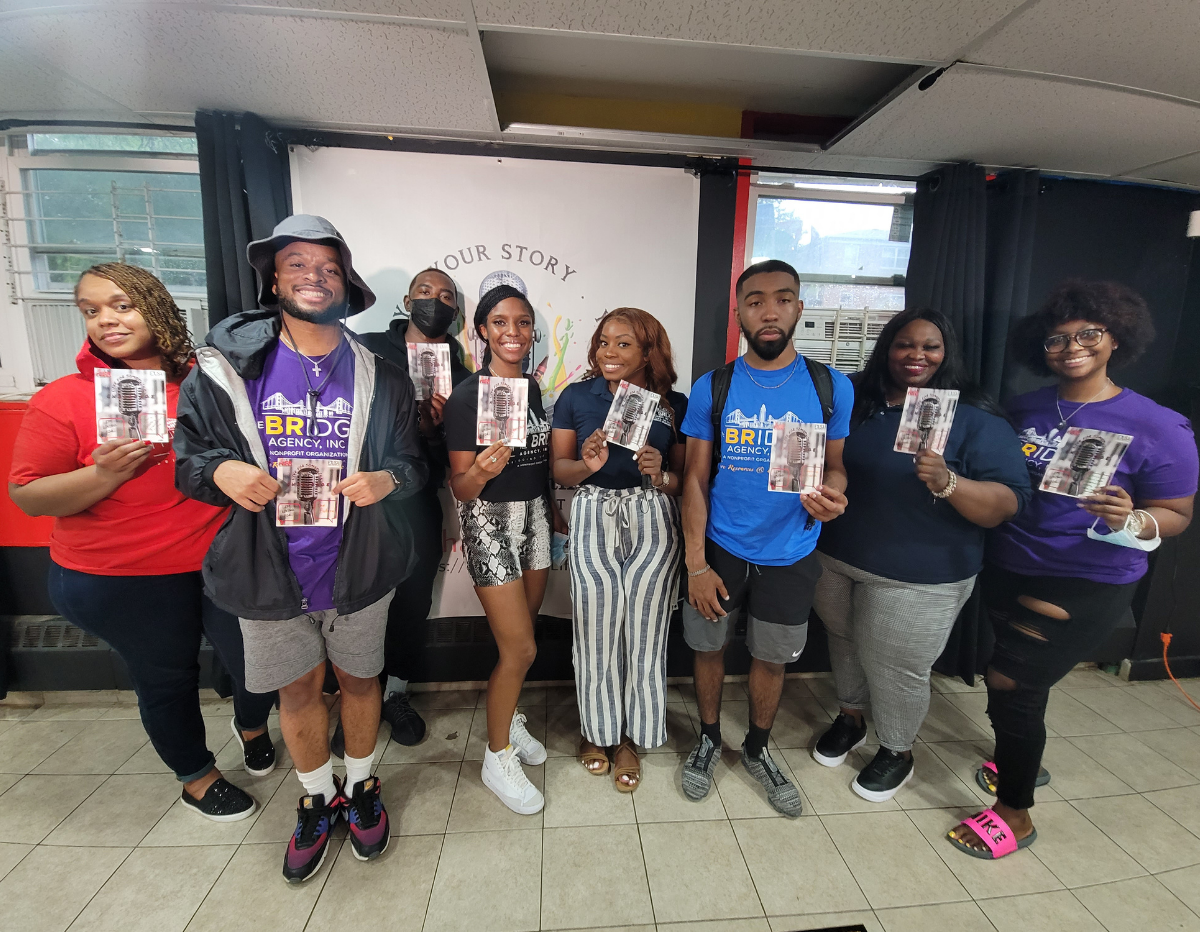
Nicole Scott started The BRidge Agency with the goal of it acting as the bridge connecting community members and the resources needed to meet their needs. Her own experience living in Baton Rouge is proof that families that are struggling are often unaware of the help that’s available.
Nearing its fifth anniversary, the scope of Nicole’s organization is far reaching. Notably, The BRidge serves the city through food outreach and trauma healing. Nicole knows that deficits in these areas are at the root of violence, and community-led solutions are the way to create safety.
As an EJUSA Trauma & Healing Network member, she uses the network as a way to partner with other advocates to build responses to violence that address all forms of trauma.
You’re not talking about coalition building in Baton Rouge if you’re not talking to Nicole Scott. She holds connectedness at the center of her work — a critical reason she joined our Trauma & Healing Network (THN). A strong sense of community contributes to her resiliency and has pulled her through some difficult times in her life.
Nicole cites the pain of her parents’ divorce as well as the witnessing of violence at various points in her life as significant early challenges. But a few months in 2016 changed the trajectory of her life.
On July 5, 2016, Baton Rouge police murdered an unarmed Alton Sterling outside of a convenience store, triggering protests. A week later, a gunman hunted down police officers, shooting six, killing three.
Just a month later, historic rainfall unleashed massive flooding on the Baton Rouge community. Over a matter of weeks, her entire city experienced astonishing levels of trauma and drove Nicole to found The BRidge Agency and bring healing through collaboration to her community.
Her relationship with the THN seems like a natural one, as she values the more remarkable, collective effort that can be made through collaboration.
As it nears its fifth anniversary, The BRidge Agency runs 10 programs that serve the Baton Rouge community. The program scope ranges from faith-based leader programs and food outreach to trauma and mental health.
Nicole named the agency for its goal to be the connection between families and the resources they need. “We intentionally connect the community to resources,” she said. “It could be a person on the corner or someone that works a 9-to-5 job. Some community members might not know that there are laws that give them access to resources that can meet their needs. So, we ask, ‘Did you know this law exists?’ Then we show them how to access it.”
Although she started the organization five years ago, Nicole has been an advocate for more than 23 years. She worked with former Mayor Kip Holden on a grant to address the social drivers of crime, find solutions for communities living in disenfranchised neighborhoods, provide access to mental health resources, and improve relationships with police. Even as a young adult in college, she worked to connect youth to continuing education programs and job opportunities.
Nicole’s passion for serving Baton Rouge stems from her life circumstances. She and her family needed the same resources that The BRidge provides today. “I was a single mom, helping to support my mom, working minimum wage jobs, three to four contract jobs, donating plasma all to make sure my son has access to opportunities,” said Nicole.
She recalls living in a dilapidated house and “heating water on the stove for baths.” Nicole and her family weren’t aware of the help that the city could offer. With a keen awareness of how families can suffer when they aren’t aware of the support available, The BRidge helps families connect with housing programs. They are helping “the grandmother that needs help with her home and doesn’t know these programs exists.”
As her organization is making strides in advocating for individuals in Baton Rouge, Nicole still seeks out new solutions. She calls herself a “forever student.”
Along with other organizers from Baton Rouge, she visited Newark, NJ, to see EJUSA’s work to reduce and prevent violence through community-led initiatives and foster healing relationships between community members and law enforcement (Trauma to Trust). Looking back on her experience, Nicole asserted that “Newark has the right model. It fits, it works, and there’s a need for it. The model should be replicated across the country.”
As a THN member, Nicole will partner with other organizers across the country to discuss ideas and strategies for building responses to violence that address all forms of trauma. “Everyone gets to hear and engage,” she. With her work at the The BRidge Agency and her experiences with THN, she calls this phase in her journey a time when she’s “sitting at the table and creating solutions, and it all feels possible because of collaboration.”



